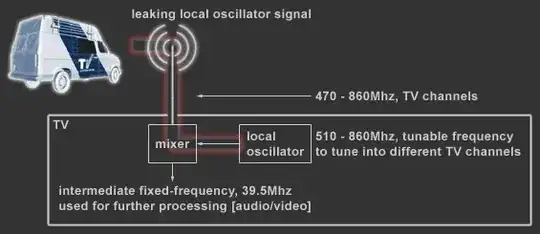For a TV to be able to interpret the information, the high-frequency input is mixed with a local oscillator signal. This is the signal that the detector van can pick up.

Heaps more info here
We have a very similar system in Sweden. The IT magazine Ny Teknik wrote an article called "Yes, you can detect flat screen TV's as well", to debunk the somewhat popular claim to the contrary. Article (swedish), Terrible Google translate.
The article makes the following points (my translation):
New LCD TV's can be detected as long as they have a mid-frequency receiver that modulates the broadcasted TV signal to a base band signal. Its components are subsequently demodulated to become image- and sound signals, respecitvely.
...
TV detection is entirely independent of what technique is used to display the image to the viewer. LCD or plasma makes no difference. VCRs, TV-cards for computers and video cameras with built in TV-tuner has this oscillator as well.
The shift to flat screens does not as such present any problem to the TV detectors. What's worse is the shift to digital TV. If you have a TV receiver that only receives digital signal then there is no local oscillator for the detectors to detect.
The problem with TV detector vans is not that they don't work at all, but rather that they are just now ceasing to be effective, as we're moving towards exclusively digital signals. As TV detection yields diminishing returns, the cost/benefit balance will soon turn TV detection into an unreasonable endeavour.
Techniques that are not as likely to go out of date include:
- Requirement for TV retailers to report all purchases
- Phone calls and house visits to try and hear/see a TV
Eye witness won't legally get them very far, though, and you are never required to let such visitors inside your house. Still, this is usually enough to manage to coerce most people caught escaping their license into paying up.
I'm not familiar with the particulars of BBC, but I doubt kidnapping was ever a part of their profession.
